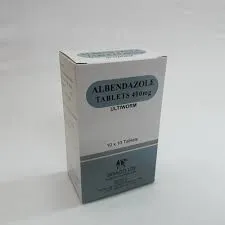- Afrikaans
- Albanian
- Amharic
- Arabic
- Armenian
- Azerbaijani
- Basque
- Belarusian
- Bengali
- Bosnian
- Bulgarian
- Catalan
- Cebuano
- Corsican
- Croatian
- Czech
- Danish
- Dutch
- English
- Esperanto
- Estonian
- Finnish
- French
- Frisian
- Galician
- Georgian
- German
- Greek
- Gujarati
- Haitian Creole
- hausa
- hawaiian
- Hebrew
- Hindi
- Miao
- Hungarian
- Icelandic
- igbo
- Indonesian
- irish
- Italian
- Japanese
- Javanese
- Kannada
- kazakh
- Khmer
- Rwandese
- Korean
- Kurdish
- Kyrgyz
- Lao
- Latin
- Latvian
- Lithuanian
- Luxembourgish
- Macedonian
- Malgashi
- Malay
- Malayalam
- Maltese
- Maori
- Marathi
- Mongolian
- Myanmar
- Nepali
- Norwegian
- Norwegian
- Occitan
- Pashto
- Persian
- Polish
- Portuguese
- Punjabi
- Romanian
- Russian
- Samoan
- Scottish Gaelic
- Serbian
- Sesotho
- Shona
- Sindhi
- Sinhala
- Slovak
- Slovenian
- Somali
- Spanish
- Sundanese
- Swahili
- Swedish
- Tagalog
- Tajik
- Tamil
- Tatar
- Telugu
- Thai
- Turkish
- Turkmen
- Ukrainian
- Urdu
- Uighur
- Uzbek
- Vietnamese
- Welsh
- Bantu
- Yiddish
- Yoruba
- Zulu
9 月 . 09, 2024 16:15 Back to list
ALBENDAZOLE
ALBENDAZOLE
About
ALBENDAZOLE belongs to a group of antiparasitic drugs called 'anthelmintic' used to treat parasites worm infections like neurocysticercosis (infection caused by pork tapeworm) and cystic hydatid disease (infection caused by dog tapeworm). Additionally, ALBENDAZOLE is also used to treat infections caused by roundworms, hookworms, threadworms, whipworms, pinworms, flukes, and other parasites.
ALBENDAZOLE contains ‘Albendazole’, which works by inhibiting tubulin polymerisation. This causes metabolic disruption and energy depletion in the parasite, which leads to its immobilisation. Thereby, ALBENDAZOLE kills the susceptible helminth and treats the infection.
Take ALBENDAZOLE as prescribed. You are advised to take ALBENDAZOLE for as long as your doctor has prescribed it for you, depending on your medical condition. You may experience certain common side effects, such as stomach pain, nausea, vomiting, headache, and dizziness in some cases. Most of these side effects do not require medical attention and will resolve gradually over time. However, you are advised to talk to your doctor if you experience these side effects persistently.
ALBENDAZOLE might increase the chances of getting an infection; maintain proper hygiene, and try to stay away from people with infections, flu or colds. Consult your doctor if you notice unusual bleeding or bruising, as you may bleed or bruise easily while taking ALBENDAZOLE. Do not take ALBENDAZOLE if you are pregnant or planning for pregnancy as it may cause foetal harm. Do not breastfeed during and for a minimum of 5 days after treatment with ALBENDAZOLE. ALBENDAZOLE may cause dizziness, so be cautious while driving. ALBENDAZOLE can be given to children if prescribed by the doctor. Keep your doctor informed about your health condition and medicines to rule out any side effects.
Uses of ALBENDAZOLE
Medicinal Benefits
ALBENDAZOLE belongs to a group of medicines called anthelmintic used to treat worm infections such as neurocysticercosis (infection caused by pork tapeworm) and cystic hydatid disease (infection caused by dog tapeworm). ALBENDAZOLE is also used to treat infections caused by roundworms, hookworms, threadworms, whipworms, pinworms, flukes, and other parasites. ALBENDAZOLE is a broad-spectrum anthelmintic drug which is highly effective against a wide range of intestinal helminths, including cestodes, nematodes, and trematodes. It is also effective against tissue helminth infections like cutaneous larva migrans (parasitic skin infections). ALBENDAZOLE exhibits ovicidal, larvicidal and vermicidal activity. ALBENDAZOLE inhibits tubulin polymerisation, which causes metabolic disruption and energy depletion in the parasite. This leads to the immobilisation of the parasite. Thereby, ALBENDAZOLE kills the susceptible helminth and treats the infection.
Directions for Use
Storage
Side Effects of ALBENDAZOLE
- Stomach pain
- Nausea
- Vomiting
- Headache
- Dizziness
In-Depth Precautions and Warning
Drug Warnings
Do not take ALBENDAZOLE if you are allergic to any of its contents. ALBENDAZOLE may cause bone marrow suppression, aplastic anaemia, and agranulocytosis. Inform your doctor if you have/had liver disease; if you have any surgery, including dental surgery. Consult your doctor immediately if you experience seizures, vomiting, headache, extreme tiredness, or behaviour changes while taking ALBENDAZOLE. Regular blood cell count and liver function monitoring is advised during treatment with ALBENDAZOLE. ALBENDAZOLE might increase the chances of getting an infection; maintain proper hygiene, and try to stay away from people with infections, flu or cold. Consult your doctor if you notice unusual bleeding or bruising, as you may bleed or bruise easily while taking ALBENDAZOLE. Do not take ALBENDAZOLE if you are pregnant or planning for pregnancy as it may cause foetal harm. Do not breastfeed during and for minimum of 5 days after treatment with ALBENDAZOLE. ALBENDAZOLE may cause dizziness, so be cautious while driving. ALBENDAZOLE can be given to children if prescribed by the doctor.
Albendazole Tablet 300mg
Drug Interactions
Drug-Drug Interactions: ALBENDAZOLE may have interaction with anthelmintic (praziquantel), corticosteroid (dexamethasone), antacid (cimetidine), anti-asthma (theophylline).
Drug-Food Interactions: No interactions found/established.
Drug-Disease Interactions: Inform your doctor if you have myelosuppression (bone marrow suppression), hepatobiliary dysfunction (liver and biliary disease), neurological disorder, and kidney dysfunction.
Drug-Drug Interactions Checker List:
- DEXAMETHASONE
- CIMETIDINE
- THEOPHYLLINE
- PRAZIQUANTEL
Safety Advice
-
Alcohol
cautionIt is unknown whether alcohol interacts with ALBENDAZOLE. Please consult your doctor.
-
Pregnancy
unsafeALBENDAZOLE belongs to pregnancy category C. Do not take ALBENDAZOLE if you are pregnant or planning for pregnancy as it may cause foetal harm. Please consult your doctor if you have any concerns regarding this.
-
Breast Feeding
unsafeDo not breastfeed during and for minimum 5 days after treatment with ALBENDAZOLE. Please consult your doctor if you have any concerns regarding this.
-
Driving
cautionALBENDAZOLE may cause dizziness. Do not drive or operate machinery unless you are alert.
-
Liver
unsafeDose adjustment may be needed in patients with liver impairment. Please consult your doctor if you have a liver impairment or any concerns regarding this.
-
Kidney
cautionDose adjustment may be needed in patients with kidney impairment. Please consult your doctor if you have kidney impairment or any concerns regarding this.
-

Children
safe if prescribedALBENDAZOLE can be given to children if prescribed by the doctor. Please consult your doctor. Your doctor will prescribe the dose of this medicine based on the age and body weight of your child.
Habit Forming
Diet & Lifestyle Advise
- Regularly wash your hands with soap and water, especially after using the toilet and while eating.
- Avoid eating raw fish and meat.
- Thoroughly cook meat before eating.
- Wash all fruits and vegetables properly before consuming.
- Wash or reheat food that has been around for a long time.
- Avoid contact with soil that may be contaminated with faeces.
- Avoid foods that have been kept open in the markets as they can be contaminated.
- Drink boiled and purified water.
Special Advise
-
Regular monitoring of blood cell count and liver function is advised during treatment with ALBENDAZOLE.
-
ALBENDAZOLE might increase the chances of getting an infection; maintain proper hygiene, and try to stay away from people with infections, flu or cold.
-
Consult your doctor if you notice unusual bleeding or bruising as you may bleed or bruise easily while taking ALBENDAZOLE.
-
ALBENDAZOLE will not treat a viral infection such as the flu or a common cold.
Patients Concern
Disease/Condition Glossary
Parasitic worm infections: Parasitic worms are also called intestinal worms or helminths. They live in and feed on the hosts leading to weakness and diseases. Common types of intestinal worms are roundworms and flatworms, such as tapeworms and flukes. Worm infections could occur due to consumption of contaminated water, food or soil, contact with contaminated faeces, poor sanitisation and poor hygiene. Symptoms of worm infections include abdominal pain, diarrhoea, nausea, vomiting, gas, bloating, fatigue, unexplained weight loss, and dysentery (bloody stools).
-
The Power of Radix Isatidis Extract for Your Health and Wellness
NewsOct.29,2024
-
Neomycin Sulfate Soluble Powder: A Versatile Solution for Pet Health
NewsOct.29,2024
-
Lincomycin Hydrochloride Soluble Powder – The Essential Solution
NewsOct.29,2024
-
Garamycin Gentamicin Sulfate for Effective Infection Control
NewsOct.29,2024
-
Doxycycline Hyclate Soluble Powder: Your Antibiotic Needs
NewsOct.29,2024
-
Tilmicosin Premix: The Ultimate Solution for Poultry Health
NewsOct.29,2024














